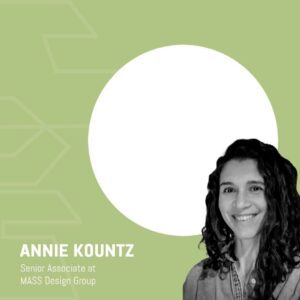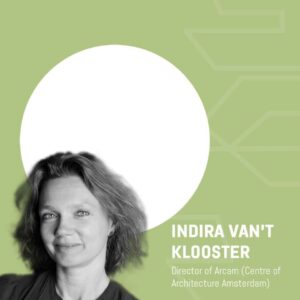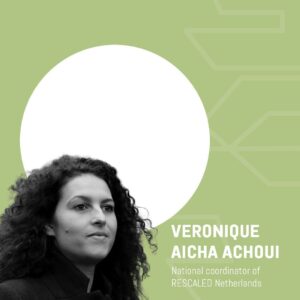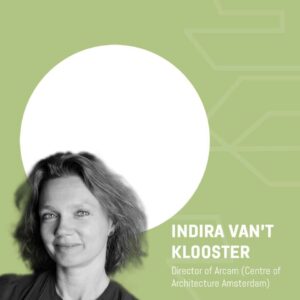What is the variation in the different types of houses? ‘In the Netherlands, there are many great examples of small-scale housing forms that could (partly) be used as detention houses. They have been around for decades and are already being used in many different ways. So…we have the houses…we have the knowledge … and we have the network … Why are people still going to prison instead of going to different types of houses? We will talk about this during the Livestream ‘A house is a house is a house.’
What is the variation in the different types of houses? ‘In the Netherlands, there are many great examples of small-scale housing forms that could (partly) be used as detention houses. They have been around for decades and are already being used in many different ways. So…we have the houses…we have the knowledge … and we have the network … Why are people still going to prison instead of going to different types of houses? We will talk about this during the Livestream ‘A house is a house is a house.’



In 2021, RESCALED Netherlands will enter into a partnership with Pakhuis de Zwijger, a cultural center, to further develop the idea of a detention house within the circular city of the near future in their program ‘Designing Cities For All’.
Pakhuis de Zwijger is an accessible, independent and safe public meeting place for everyone. A contemporary ‘talking house’ with a strong online environment that has opted for dialogue as a form of conversation. A place where they jointly formulate ambitions and present different opinions and insights in order to arrive at creative solutions for the urgent and complex social issues of our time; where we bring artists and designers together with scientists, policymakers, practitioners and citizens in all their diversity. Where together they visualize the city and metropolitan region of tomorrow, test research results against everyday practice and present technological and social innovation as alternatives to current policy and actual reality. And finally, above all, a place where a lot of questions are asked, while embracing and tackling social issues. read more

RESTORATIVE JUSTICE DESIGN LAB
Mass Design Group
DESIGNING CITIES FOR US ALL – 2021/2022
PAKHUIS DE ZWIJGER
Reimagining prison shifting the culture of incarceration from retribution to rehabilitation
Vera Institute of Justice
 Annie is a Senior Associate at MASS Design Group who joined MASS in 2021. Prior to MASS, Annie designed and managed architectural projects focused on social and racial justice. This ranged from supportive housing, schools, early education centers, community centers and restorative justice centers for non-profits and public agencies in New York City. Her projects received multiple awards in New York state and nationally.
At MASS, she is currently working on the design of an affordable housing and health care project. She works with the Restorative Justice Design Lab, which leverages architecture to imagines alternatives, highlight spatial injustices, and advocate for decarceration and prison abolition.
Annie is a Senior Associate at MASS Design Group who joined MASS in 2021. Prior to MASS, Annie designed and managed architectural projects focused on social and racial justice. This ranged from supportive housing, schools, early education centers, community centers and restorative justice centers for non-profits and public agencies in New York City. Her projects received multiple awards in New York state and nationally.
At MASS, she is currently working on the design of an affordable housing and health care project. She works with the Restorative Justice Design Lab, which leverages architecture to imagines alternatives, highlight spatial injustices, and advocate for decarceration and prison abolition. Our mission is to research, build and advocate for architecture that promotes justice and human dignity.
– MASS DESIGN GROUP Tweet
 Indira van ‘t Klooster has been director of Arcam since 1 November 2019. At Pakhuis de Zwijger she presents Architecture Now, on current themes in architecture. Author of Reactivate! Innovators of Dutch Architecture. In the past year she has been exploring with many parties how a city model with digital layers can be a tool in the use of data for the big design questions for the future. The struggle for visibility, acceptance, and protection for all the residents of Amsterdam is far from over. With the exhibition Safe Spaces at Arcam, Indira van ‘t Klooster invites us to consider selected instances of how architecture or design has contributed to the visibility and safety of certain social groups and to reflect upon their impact.
Indira van ‘t Klooster has been director of Arcam since 1 November 2019. At Pakhuis de Zwijger she presents Architecture Now, on current themes in architecture. Author of Reactivate! Innovators of Dutch Architecture. In the past year she has been exploring with many parties how a city model with digital layers can be a tool in the use of data for the big design questions for the future. The struggle for visibility, acceptance, and protection for all the residents of Amsterdam is far from over. With the exhibition Safe Spaces at Arcam, Indira van ‘t Klooster invites us to consider selected instances of how architecture or design has contributed to the visibility and safety of certain social groups and to reflect upon their impact.
In the context of the super-diverse city, how can designers contribute to the creation of inclusive cities for, and by everyone? ‘Cities of Belonging’, as we would call them, cities in which everyone feels and is allowed to feel at home. Not only in a spatial sense but also with regard to the digital domain and relating to the design of our public systems, services, and products.
- DESIGNING CITIES FOR ALL Tweet
 Veronique is national coordinator of RESCALED Netherlands. With a background in social psychology, she has been working in the sector of criminal justice reform for more than ten years. Veronique previously worked in Balkan countries Albania, Kosovo and North-Macedonia for human rights organization Netherlands Helsinki Committee within the criminal justice system, was chair of the Dutch branch of European Prison Education Association and now works for Restorative Justice Netherlands, an organization working on restorative justice and transformative justice.
Veronique is national coordinator of RESCALED Netherlands. With a background in social psychology, she has been working in the sector of criminal justice reform for more than ten years. Veronique previously worked in Balkan countries Albania, Kosovo and North-Macedonia for human rights organization Netherlands Helsinki Committee within the criminal justice system, was chair of the Dutch branch of European Prison Education Association and now works for Restorative Justice Netherlands, an organization working on restorative justice and transformative justice.
In 2021, RESCALED Netherlands will enter into a partnership with Pakhuis de Zwijger, a cultural center, to further develop the idea of a detention house within the circular city of the near future in their program ‘Designing Cities For All’.
Pakhuis de Zwijger is an accessible, independent and safe public meeting place for everyone. A contemporary ‘talking house’ with a strong online environment that has opted for dialogue as a form of conversation. A place where they jointly formulate ambitions and present different opinions and insights in order to arrive at creative solutions for the urgent and complex social issues of our time; where we bring artists and designers together with scientists, policymakers, practitioners and citizens in all their diversity. Where together they visualize the city and metropolitan region of tomorrow, test research results against everyday practice and present technological and social innovation as alternatives to current policy and actual reality. And finally, above all, a place where a lot of questions are asked, while embracing and tackling social issues. read more
RESTORATIVE JUSTICE DESIGN LAB
Mass Design Group
DESIGNING CITIES FOR US ALL – 2021/2022
PAKHUIS DE ZWIJGER
Reimagining prison shifting the culture of incarceration from retribution to rehabilitation
Vera Institute of Justice
© 2024 All rights reserved by rescaled